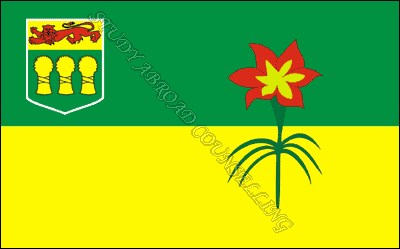Students choose Canadian universities
for its quality education, the environment, peace and some of the indirect
factors which will help them in future. The factors which students give much
more importance nowadays are permanent residence and job prospects in Canada.
In Canada each and every province has got its own government rules and even the PR rule and application process changes in each province.
Thus, now students are looking at the provinces where getting PR is very easy and also the unemployment factor is less. Choosing a University and the province is vital for a student and this plays an important role when it comes to a student’s career.
The
main provinces in Canada are:
*
Saskatchewan
*
Quebec
*
Alberta
*
Ontario
*
Manitoba
*
British Columbia
But
out of all these, the two provinces which have easy Permanent Residence rules
and lowest unemployment rate are:
*Saskatchewan
*Quebec
In this post we will be looking into these two province in depth with our main factor analysis being unemployment and permanent residence.
Saskatchewan-
Saskatchewan has become the top priority of international students for many reasons. Among Canadian provinces, only Alberta exceeds Saskatchewan in overall oil production and thus the job opportunities in petroleum and mining is immense. According to Statistics Canada, the Saskatchewan unemployment rate for May 2013 was 4.4 percent deeming it to be the least unemployment hit province of Canada. It has one research university which comes in the U15 group of Canada- University of Saskatchewan and other popular school includes University of Regina and Saskatchewan Institute of Applied Science and Technology.
Saskatchewan has a SINP (Saskatchewan Immigrant Nominee Program) for students who are graduating from a Canadian post secondary institution. Also one can apply under Canadian Experience Class if they are a temporary foreign worker or a foreign student who graduated from Saskatchewan Institute. The Saskatchewan Immigrant Nominee Program (SINP) can provide an alternate and quicker means of entry into Canada. It allows Saskatchewan to nominate applicants, who qualify under criteria established by the province, to the federal government for landed immigrant status. There is no deadline to apply to the SINP and thus you can apply anytime.
But why we consider
Saskatchewan to be the easy PR province is not just because of SINP aspect but
because international students can apply for permanent residence even without a
job offer and also the PR processing takes a maximum of 10months to a year.
With number of applications rising exponentially within a span of two years
(from 2011 to 2013) in the universities of Saskatchewan province, it is a clear
winner for students who want to settle in Canada.
Quebec-
It is the only Canadian
province that has a predominately French speaking population and thus French is
the second official language of this province. It is also Canada's second most
populous province, after Ontario and the job opportunities are immense in aerospace, information and communication technologies, biotechnology and the pharmaceutical industry. Unemployment rate
in Quebec is around 7% which makes it the second least unemployment hit
province zone. McGill University, a world renowned university, tops the
chart in QS World ranking from Canada is present in Quebec.
The other top universities are University de Montreal, Concordia University and University of Laval. If you are an international worker then the selection for a Quebec Permanent Residence or Immigration is done based on following factors:
The other top universities are University de Montreal, Concordia University and University of Laval. If you are an international worker then the selection for a Quebec Permanent Residence or Immigration is done based on following factors:
- your schooling (your
level of education and specialty of training )
- your work experience
- your age
- your knowledge of
French and English
- your stays in
Québec and family relationship with a Canadian citizen or a permanent
Québec resident
- having a valid
employment offer (this applies only if you have received a job offer that
meets certain conditions from a Québec employer)
- characteristics
regarding your accompanying spouse or common-law spouse, if applicable
And thus based on the above
factors the points are distributed as-
Up to 12 points
(Cutoff Score = 2 points)
|
|
Up to 16 points
(Cutoff Score = 6 points)
|
|
Up to 10 points
|
|
Up to 8 points
|
|
Up to 16 points
|
|
Up to 22 points
|
|
Up to 8 points
|
|
Up to 16 points
|
|
Up to 8 points
|
|
1 point (Cutoff Score
= 1)
|
So it is not that easy
to immigrate to Canada as one might think. But Students who graduate from a
Quebec post-secondary institution may be eligible for the Quebec Experience
Class (Programme de l’expérience Québécoise/PEQ) program. This is Quebec’s
version of the Canadian Experience Class, though each has separate rules and
requirements. Generally speaking, students must have graduated and obtained a
diploma from a Quebec post-secondary institution, and completed at least an
intermediate-level French course.
Graduates from a school
outside of Quebec may also apply to the Quebec Skilled Worker (QSW) program.
This program functions on a points system, and their overall desirability as an
immigrant to Quebec will be assessed.
And guess what!! It
takes just 2 years to get a permanent residency in Quebec. So students should definitely
consider the above mentioned provinces if their main aim is to settle abroad.
.jpg)


.jpg)

.jpg)
Comments
Post a Comment